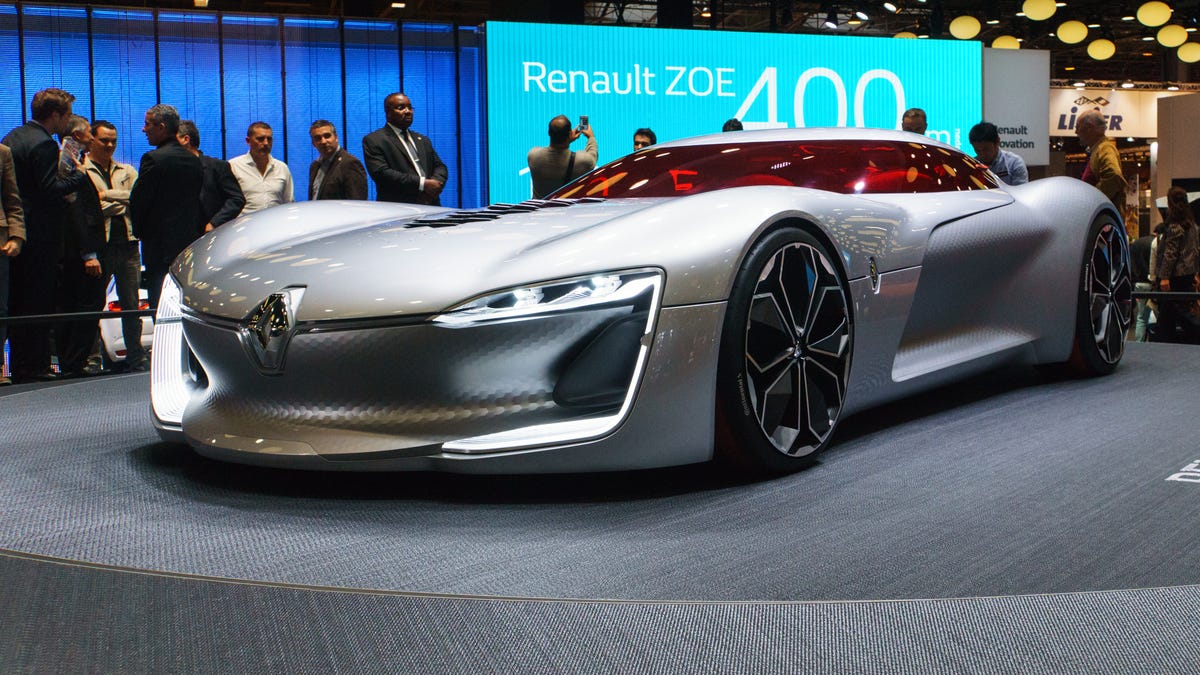Will car manufacturers want in on Apple's self-driving system?
It sounds like the Apple Car is dead, but with the company pivoting to focus on the creation of an autonomy solution, who will they sell it to?

All is not well within the fabled Apple Car project. A Bloomberg report surfaced this morning that puts a bow on a series of rumors and reports of turmoil within the supposed Project Titan, a massive, largely secretive initiative within Apple to create an honest-to-gosh car.
Like all those before, this latest report is unconfirmed, but given it comes from the pen of esteemed Apple guru Mark Gurman, there's little reason to doubt it. According to the report, Apple has laid off a good portion of the members of Project Titan and plenty of others have left, fleeing a dramatic shift in focus.
That shift? Turning away from the idea of building an actual car, instead designing the brains required to make a given car autonomous. Project Titan, according to the report, is now focused on developing and testing a vehicle autonomy system, a system that Apple could then license to vehicle manufacturers or, perhaps, slap into its own car some day.
Since a proper Apple Car is an increasingly unlikely thing, if Apple wants to ever turn a profit on this whole endeavor it needs to get cozy with other manufacturers, manufacturers who are already well on the way to developing their own solutions.
That's not going to be easy.
Selling ice to the Inuit
Not a month goes by that we don't see some major new advancement or update from some global automotive manufacturer on its autonomy efforts. Last month at Paris, there were plenty of self-driving concepts around, perhaps most striking being the Renault Trezor. Not long before that, Ford promised to have autonomous cars on the road by 2021, while Volvo will put its first autonomous cars on the road next year.
I could festoon this editorial with 100 more links, but instead I'll cut to the point: all the major auto manufacturers are already working to develop full-vehicle autonomy, and have been for years. And they're also backing that up with big investments. In August, Ford teamed up with Baidu to spend $150 million just on LiDAR sensor development, a vital but ultimately small part of the overall puzzle. And earlier this year, GM spent over a billion dollars to acquire Cruise Automation to up its own autonomy chops.
While there are some partnerships here and there, it's worth pointing out that much of the development we've seen thus far is proprietary: the bigger manufacturers are going their own way. For them, autonomy is a point of differentiation to elevate them above the rest. Rather than partnering up to share expertise, most manufacturers are content to toil away on their own, largely duplicative efforts in the hope of getting to market first with smarter, safer technology.
Slim-pickings for Apple
If the major OEMs are doing their own thing, Apple is going to have to target the smaller ones, those without bottomless R&D budgets. I'm thinking of brands like Subaru, which isn't even planning on having any kind of semi-autonomous functionality on the road until after 2020. Subaru could surely use some help from a tech powerhouse like Apple -- though whether or not the company's cars jibe with Apple's design aesthetic remains to be seen.
Ferrari could be another target, a company with close ties to Apple thanks to Eddy Cue's position on the board of directors. (Cue is Apple's senior vice president of internet software and services.)
However, given Ferrari CEO Sergio Marchionne recently said "You'll have to shoot me first" before the company builds anything autonomous, perhaps that's not such an ideal target after all.
Even with the smaller manufacturers, Apple will face stiff competition. Delphi and Mobileye are developing systems that could be applied to any car. Both companies already have extensive and long-running partnerships with manufacturers, not to mention a history of delivering reliable solutions.
A better place to focus
More cars are adding CarPlay support, but there's so much more to be optimized in the car.
Vehicular autonomy is largely a software problem, and solving that problem is a far easier task than trying to engineer and deliver a completely custom car. (Just ask Tesla CEO Elon Musk.)
Still, as you can see from the above points, this new path is far from an easy one. Apple will need to partner with manufacturers who have already made their own investments into autonomy solutions, convincing them that a company famous for delivering beautiful phones can actually deliver a solution robust enough for people to trust with their lives.
There's an easier way forward, one that I believe Apple should have been pursuing from the beginning: the dashboard. Infotainment systems, while vastly better than just a few years ago, are still ripe for reinvention. With ugly UIs offering sluggish performance in various, contradictory ways, the dashboard of today looks a fair bit like the smartphone world did before the iPhone.
A clean-slate approach relying on Apple's design expertise would be an almost certain winner, and indeed something that major manufacturers would consider licensing. We're getting there with solutions like CarPlay, where your iPhone controls some aspects of your in-car experience, but that's but a small piece of the overall in-car experience.
If Apple's going to retool its automotive intent, this is where it should look. Building a car was always too big of an ask, and nosing into the automotive supplier game doesn't feel like a good fit, either. But doing for the in-car experience what the iPhone did to the smartphone is something I, for one, would like to see.

